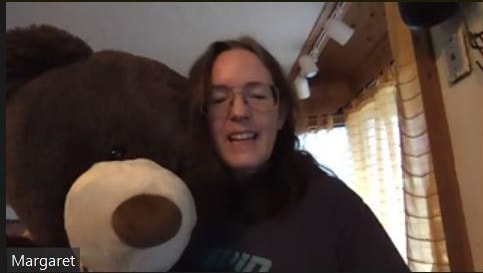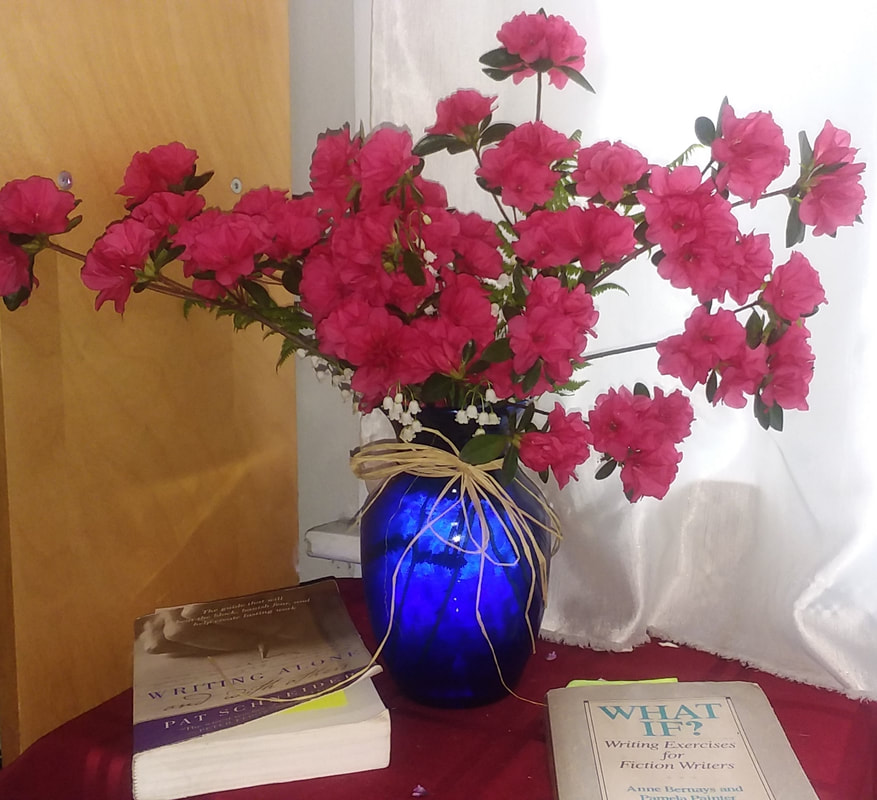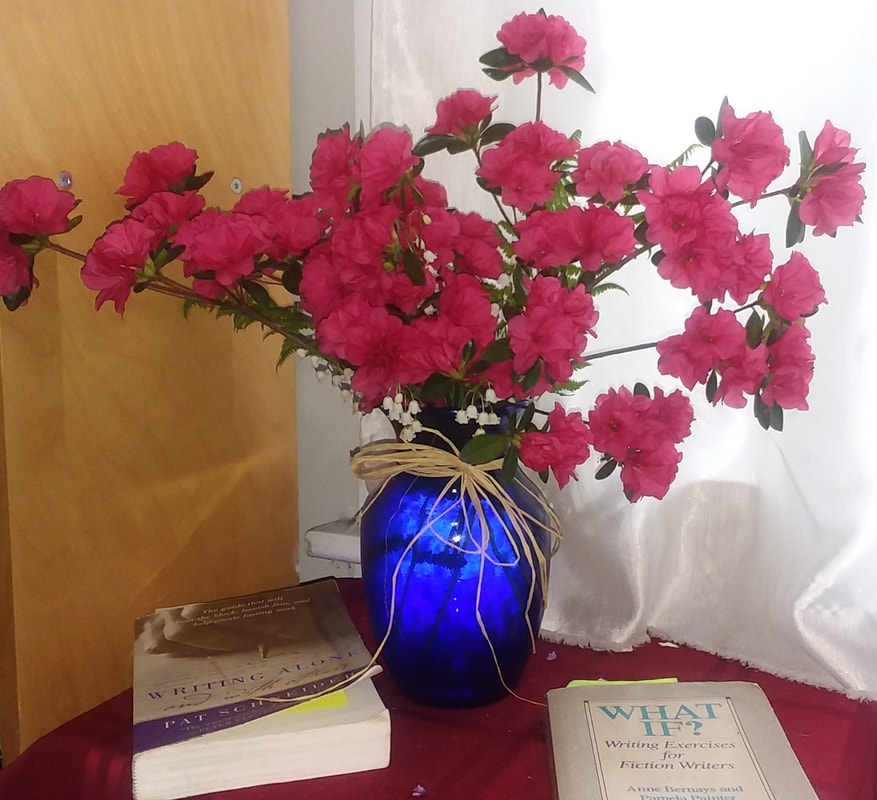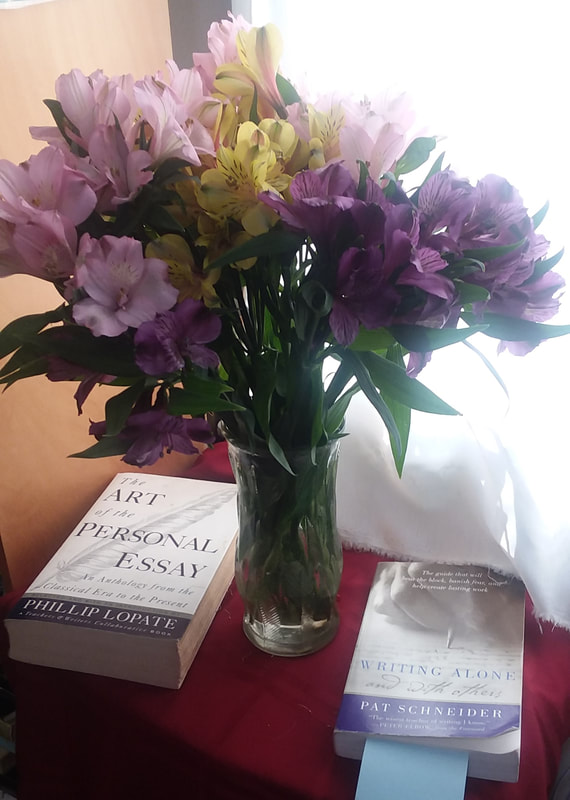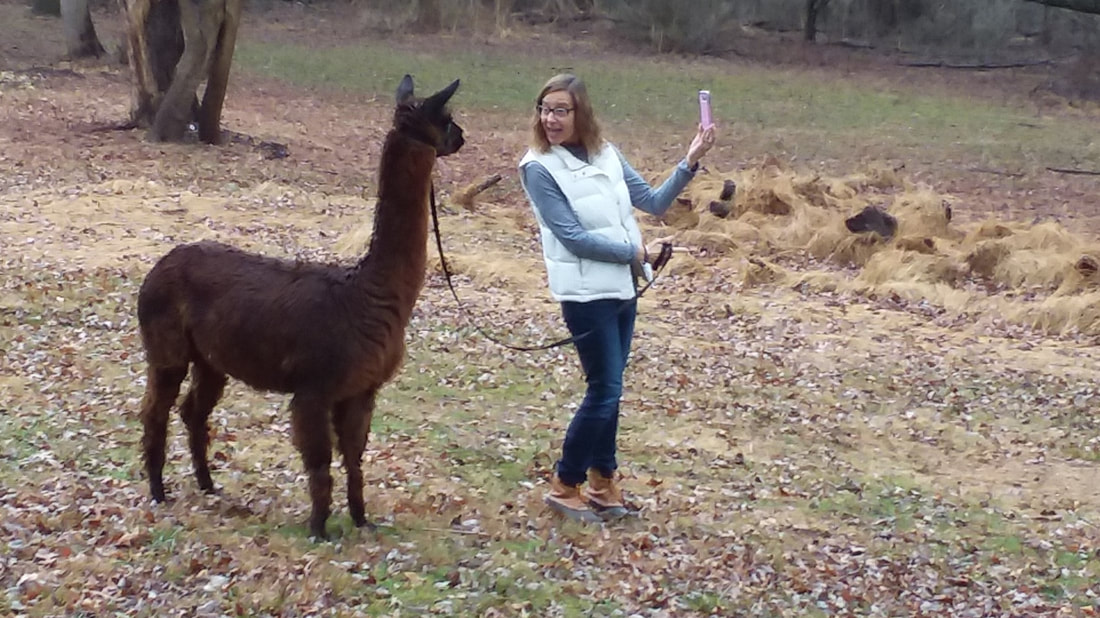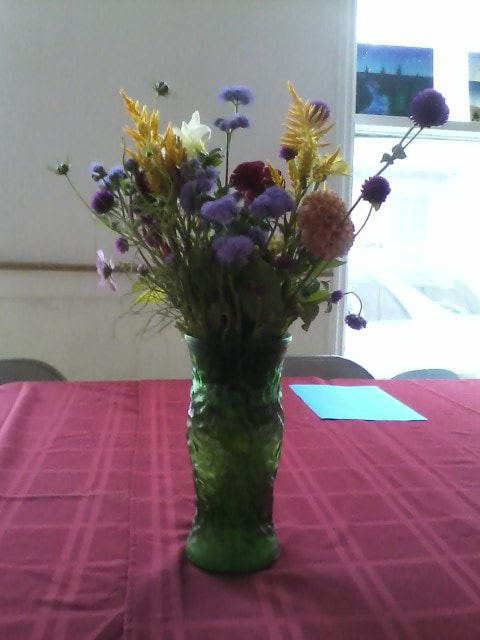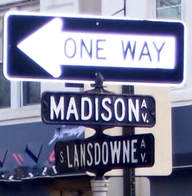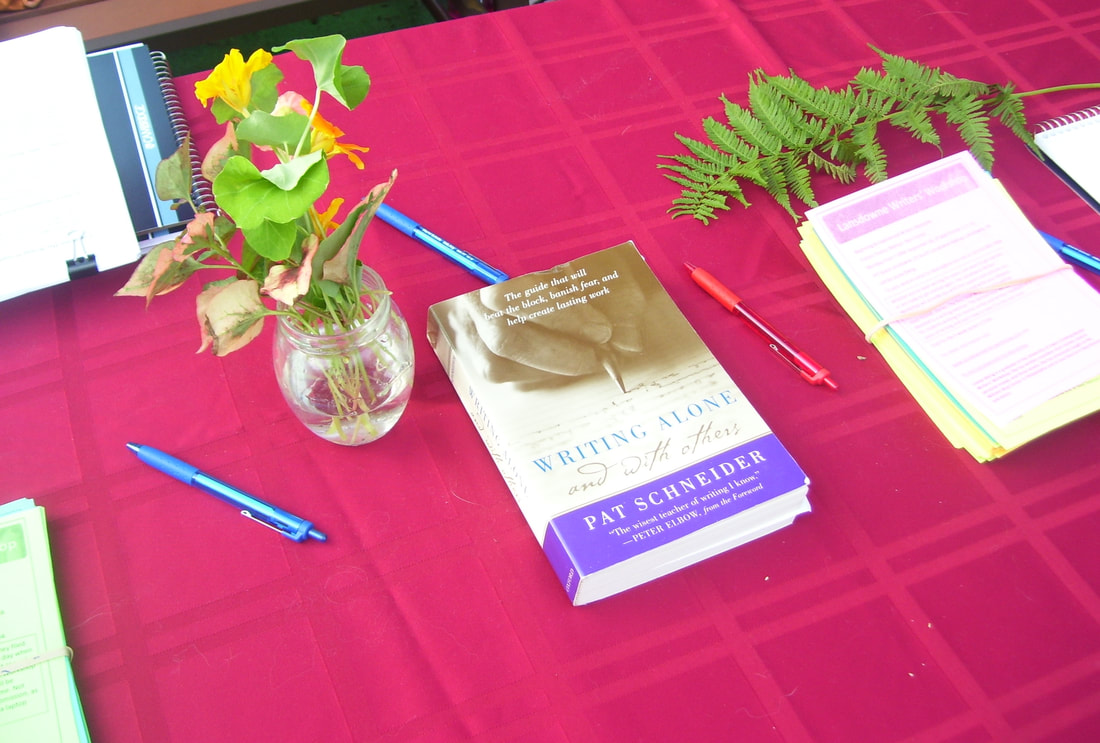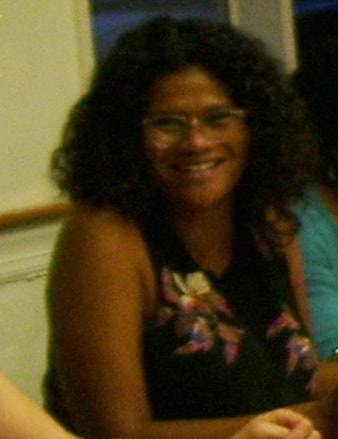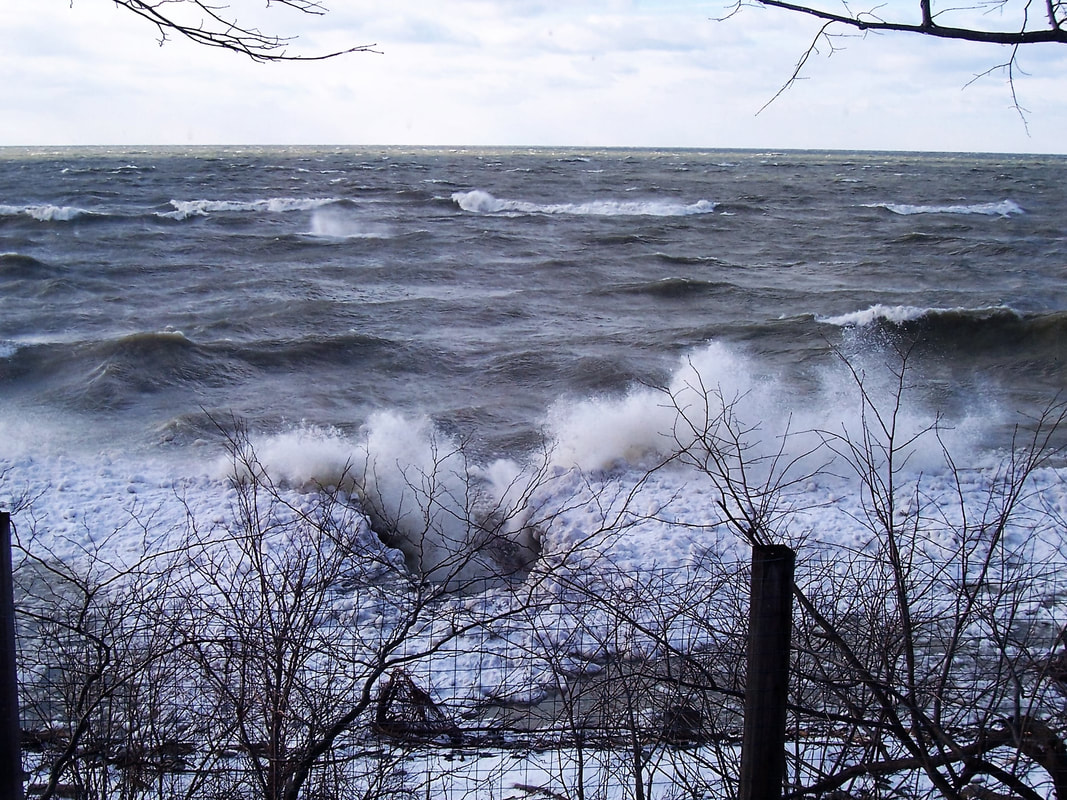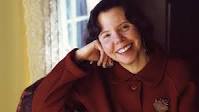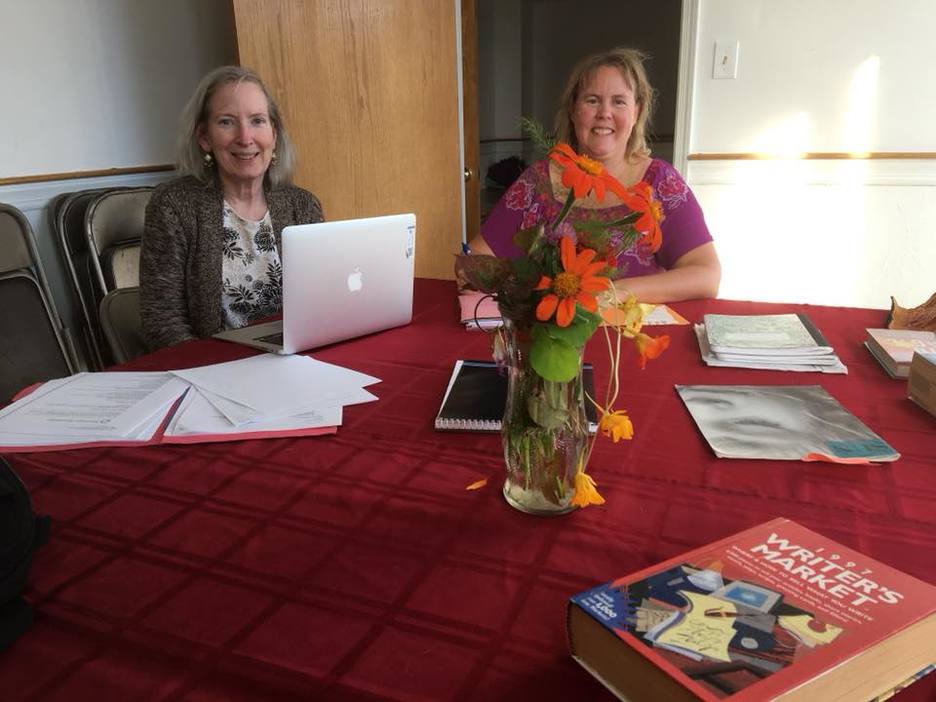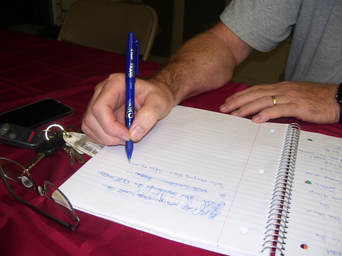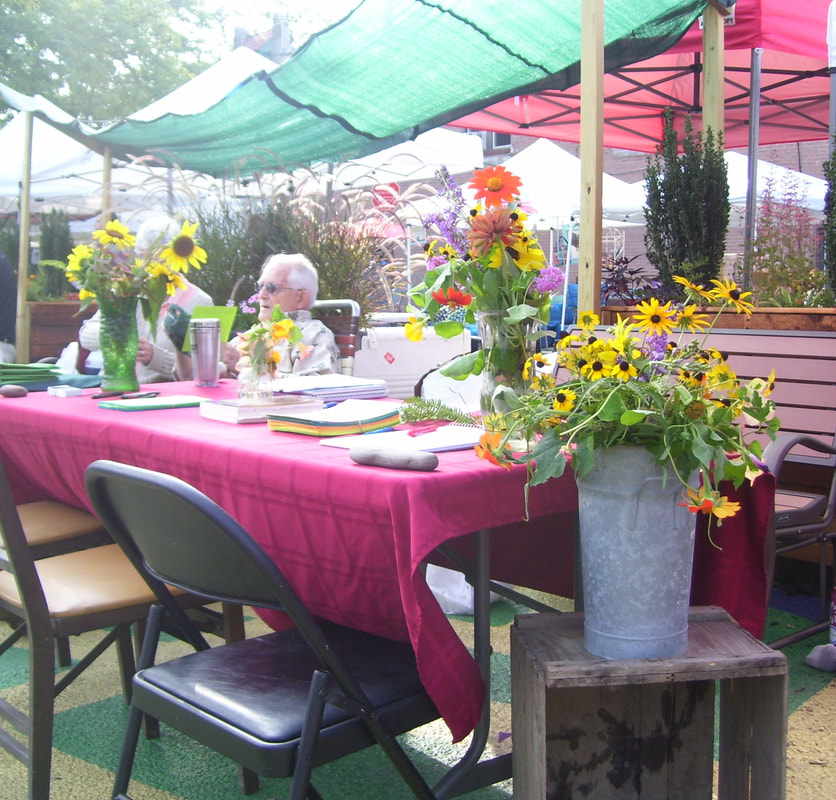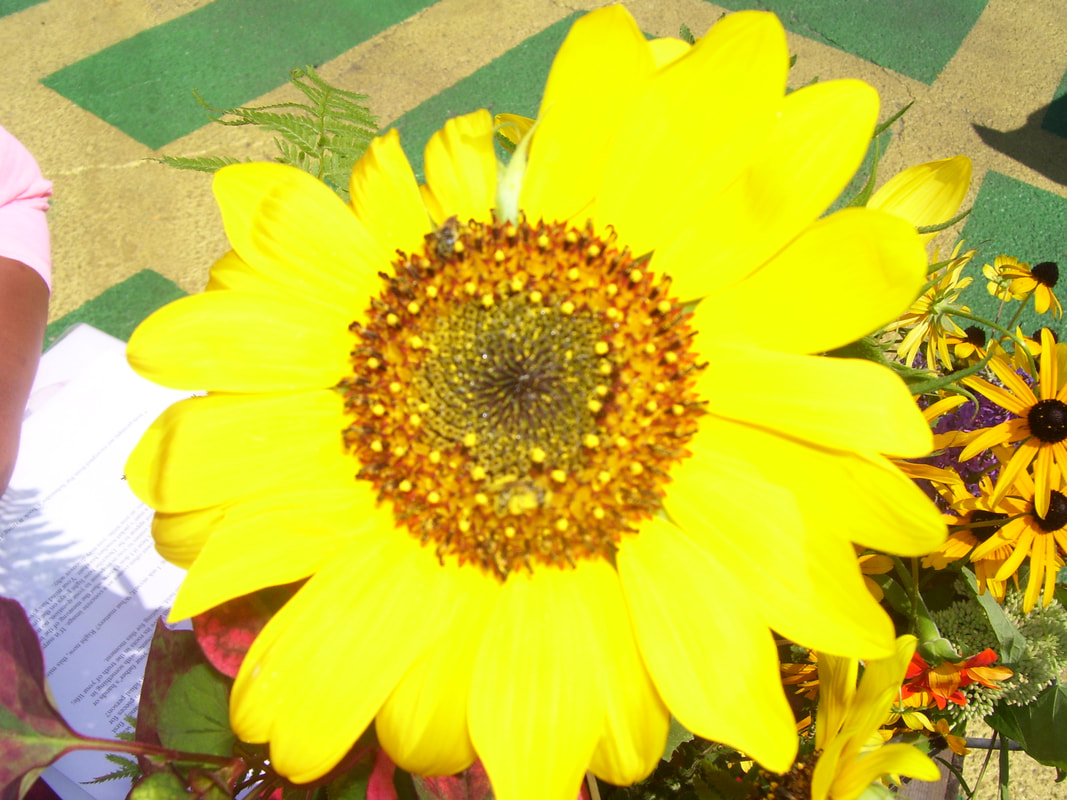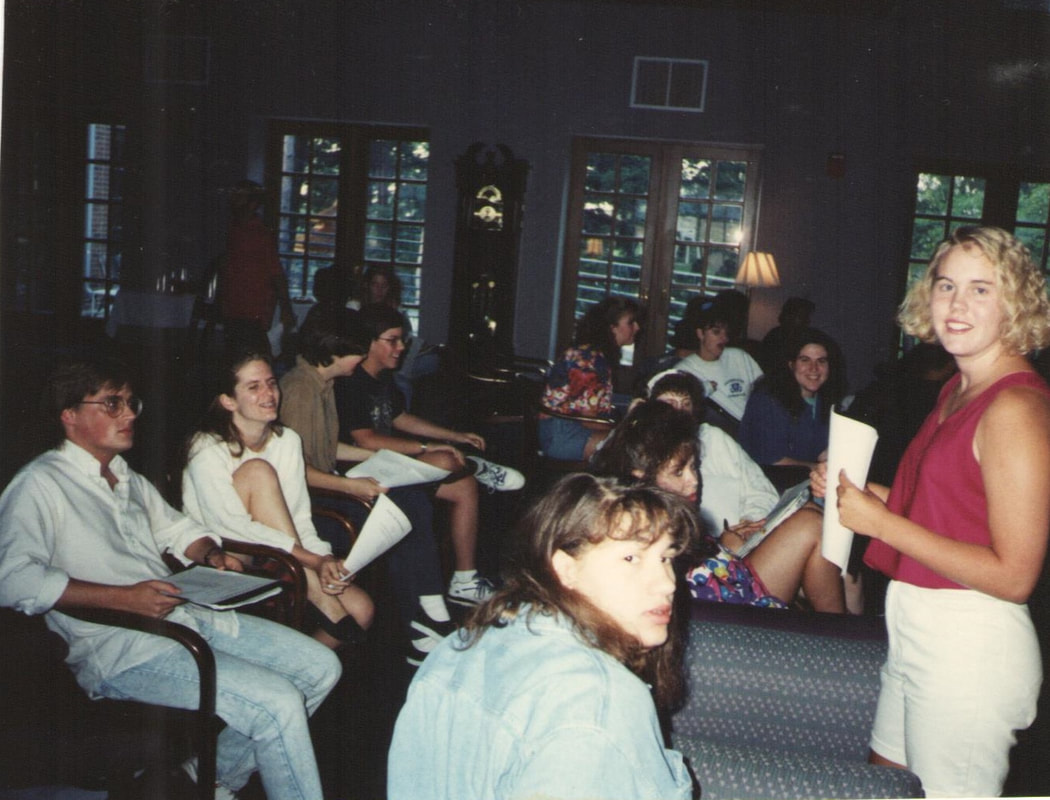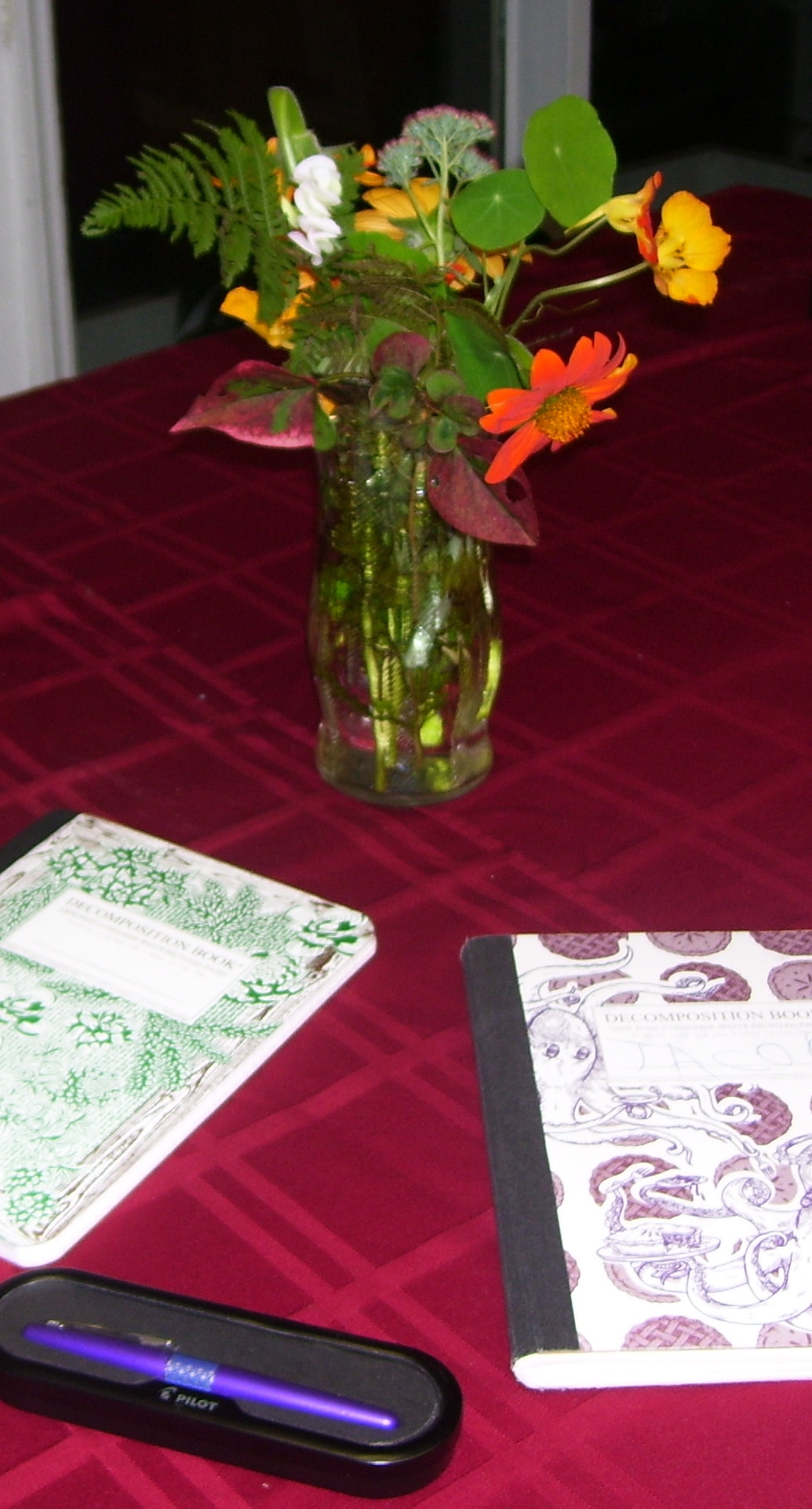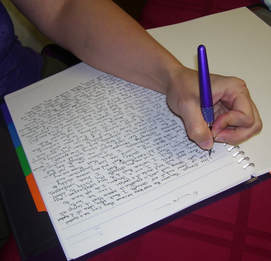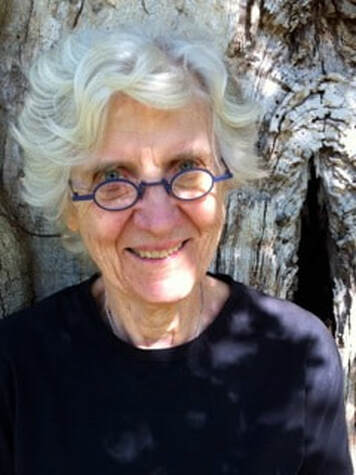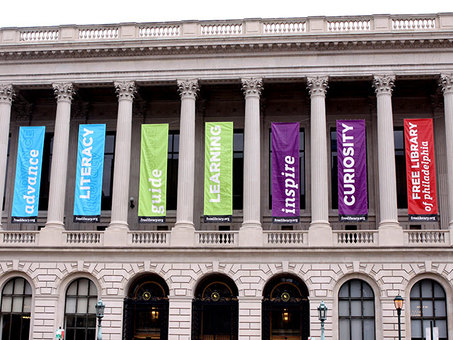Louise's "A Cow Stood in the Field" Reaches the Final Four in Mayday Magazine's March Madness Match-Off Tournament
Louise's story, A Cow Stood in the Field, advanced through match-off rounds against other stories and concluded in the Final Four!
Thank you all for taking your time to read and support this contest!!
Thank you all for taking your time to read and support this contest!!
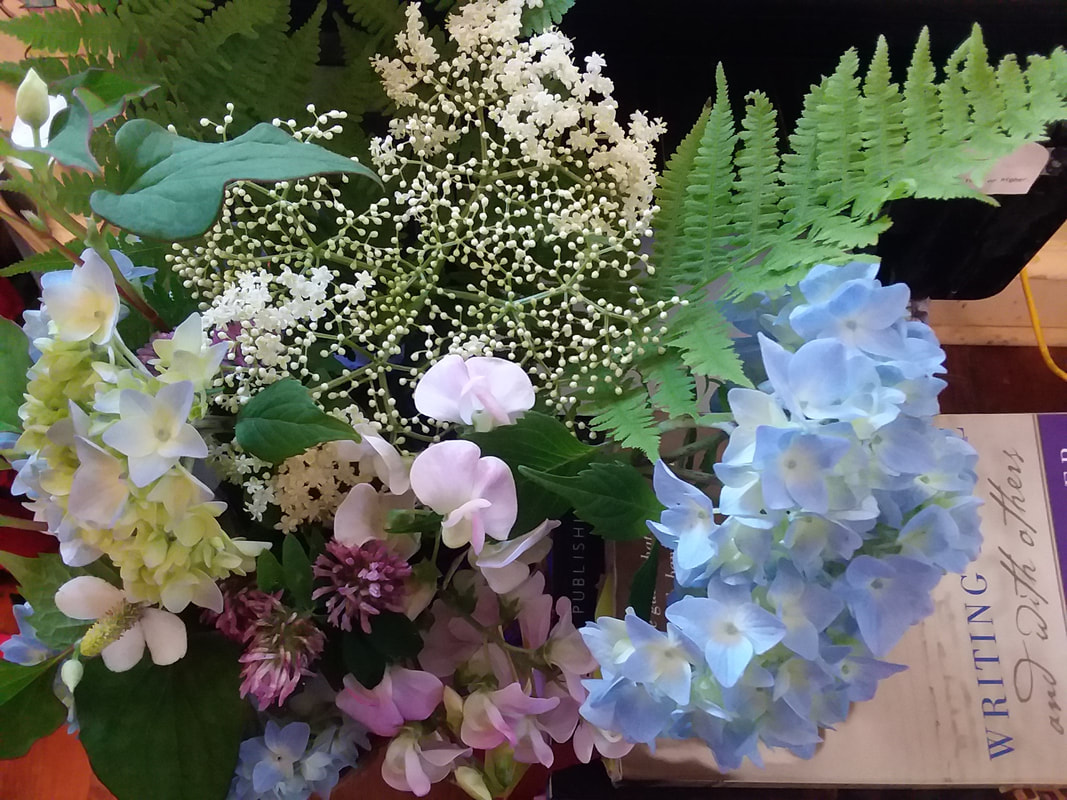
Lansdowne Fall Session Starts Wednesday, September 1
September 1, 8, 22, 29; October 6, 13, 20: 7-9PM Eastern, via zoom. Cost = $210.
Fiction, Poetry, Memoir, Creative NonFiction
To inquire about an opening, please contact Louise Bierig at [email protected] or 610.892.7604.
September 1, 8, 22, 29; October 6, 13, 20: 7-9PM Eastern, via zoom. Cost = $210.
Fiction, Poetry, Memoir, Creative NonFiction
To inquire about an opening, please contact Louise Bierig at [email protected] or 610.892.7604.
Lansdowne Writers’ Workshop: Summer Session
Supportive and encouraging workshop designed to help you:
We believe: “A writer is someone who writes.” –Pat Schneider, author of Writing Alone and With Others
Beginning & Experienced Writers Welcome
Whether you’ve been writing for years, just want to get started, or are ready to reboot your writing practice, the Lansdowne Writers’ Workshop will provide you with the support and focused quiet you need to access your authentic voice and write your deepest, most honest, stories.
The first hour of each session is devoted to a writing prompt. The second hour is available for students wishing to receive verbal and written feedback on a piece of writing and learn how to take it to the next level.
Details: July 7, 14, 21, 28; August 4, 11,18: 7-9PM Eastern, via Zoom. Cost = $210 for 7-week session, including 1-2 manuscript reviews from leader and peers.
Fiction, Poetry, Memoir, Creative Non Fiction
Workshop Leader Louise Bierig has published her short stories in Toho Publishing's The Best Short Stories of Philadelphia 2021, shortédition, Schuylkill Valley Journal, Peregrine Journal, and Philadelphia Stories. She has published her essays in The Philadelphia Inquirer and the Swarthmorean.
Supportive and encouraging workshop designed to help you:
- Generate writing, including writing in forms you may not have attempted before
- Learn craft, including dialogue, characterization, voice, point of view, and use of concrete detail
- Make new writing friends and connections; learn about local literary events and opportunities
- Receive positive, encouraging feedback on your writing that inspires you to take your piece to the next level
We believe: “A writer is someone who writes.” –Pat Schneider, author of Writing Alone and With Others
Beginning & Experienced Writers Welcome
Whether you’ve been writing for years, just want to get started, or are ready to reboot your writing practice, the Lansdowne Writers’ Workshop will provide you with the support and focused quiet you need to access your authentic voice and write your deepest, most honest, stories.
The first hour of each session is devoted to a writing prompt. The second hour is available for students wishing to receive verbal and written feedback on a piece of writing and learn how to take it to the next level.
Details: July 7, 14, 21, 28; August 4, 11,18: 7-9PM Eastern, via Zoom. Cost = $210 for 7-week session, including 1-2 manuscript reviews from leader and peers.
Fiction, Poetry, Memoir, Creative Non Fiction
Workshop Leader Louise Bierig has published her short stories in Toho Publishing's The Best Short Stories of Philadelphia 2021, shortédition, Schuylkill Valley Journal, Peregrine Journal, and Philadelphia Stories. She has published her essays in The Philadelphia Inquirer and the Swarthmorean.
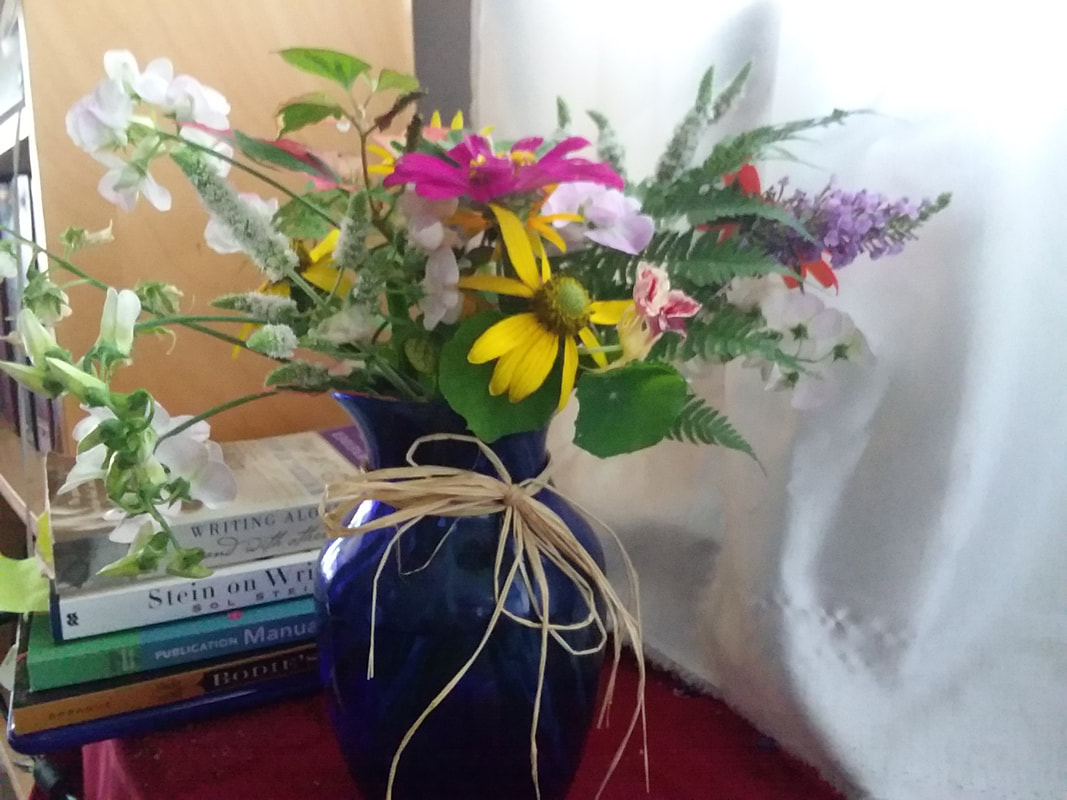
Winter Session Planned for January 2021
Come join us on January 6, 2021, for the start of Winter Session. We will continue meeting via zoom for this session.
The good news is, if you're not local to Lansdowne, or the drive was just too far, you're welcome to join us online!
Dates Include: January 6, 13, 20, 27; February 3, 10, 17.
Time: 7-9PM (Eastern) via zoom call.
Cost: 7-week session = $210.
Whether you’ve been writing for years, just want to get started, or are ready to reboot your writing practice, the Lansdowne Writers’ Workshop will provide you with the support and focused quiet you need to access your authentic voice and write your deepest, most honest, stories.
The first hour of each session is devoted to a writing prompt. The second hour is available for students wishing to receive verbal and written feedback on a piece of writing and learn how to take it to the next level.
To sign-up the workshop, please write to Louise Bierig, [email protected], or call 610.892.7604 to secure your spot.
Come join us on January 6, 2021, for the start of Winter Session. We will continue meeting via zoom for this session.
The good news is, if you're not local to Lansdowne, or the drive was just too far, you're welcome to join us online!
Dates Include: January 6, 13, 20, 27; February 3, 10, 17.
Time: 7-9PM (Eastern) via zoom call.
Cost: 7-week session = $210.
Whether you’ve been writing for years, just want to get started, or are ready to reboot your writing practice, the Lansdowne Writers’ Workshop will provide you with the support and focused quiet you need to access your authentic voice and write your deepest, most honest, stories.
The first hour of each session is devoted to a writing prompt. The second hour is available for students wishing to receive verbal and written feedback on a piece of writing and learn how to take it to the next level.
To sign-up the workshop, please write to Louise Bierig, [email protected], or call 610.892.7604 to secure your spot.
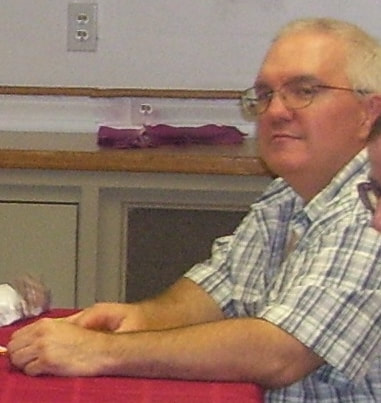
Summer Prompt Writing Winners Announced
Summer Prompt Writing Contest Winners Announced
Thank you to all who entered the Summer Prompt Writing Contest!
And thank you to judges Rachel Kobin and Maura Ciccarelli.
This year we have two winners!!
Michael M. Morell and Tom Connell
The top winning prompts are:
-From Robert Bly: "The body weeps the tears the eyes never shed." Describe someone's (or your) body shedding its tears. (Michael M. Morell)
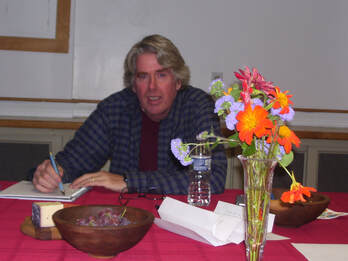
And
-It was in a drawer I hadn't opened in years. (Tom Connell)
Both winners will receive a free night of workshop.
-It was in a drawer I hadn't opened in years. (Tom Connell)
Both winners will receive a free night of workshop.
Summer Session Starts on June 10, 2020
Come join us on June 10, 2020, for the start of Summer Session. We will continue meeting online for this session.
The good news is, if you're not local to Lansdowne, or the drive was just too far, you're welcome to join us online!
Dates Include: June 10, 17, 24; July 1, 8, 15, 22.
Time: 7-9PM (Eastern) via Zoom call.
Cost: 7-week session = $210. This may be paid upfront or in installments. If your income has been affected by the shutdown, please let me know; sliding scale is available.
Whether you’ve been writing for years, just want to get started, or are ready to reboot your writing practice, the Lansdowne Writers’ Workshop will provide you with the support and focused quiet you need to access your authentic voice and write your deepest, most honest, stories.
The first hour of each session is devoted to a writing prompt. The second hour is available for students wishing to receive verbal and written feedback on a piece of writing and learn how to take it to the next level.
To sign-up the workshop, please write to Louise Bierig, [email protected], or call 610.892.7604 to secure your spot.
Come join us on June 10, 2020, for the start of Summer Session. We will continue meeting online for this session.
The good news is, if you're not local to Lansdowne, or the drive was just too far, you're welcome to join us online!
Dates Include: June 10, 17, 24; July 1, 8, 15, 22.
Time: 7-9PM (Eastern) via Zoom call.
Cost: 7-week session = $210. This may be paid upfront or in installments. If your income has been affected by the shutdown, please let me know; sliding scale is available.
Whether you’ve been writing for years, just want to get started, or are ready to reboot your writing practice, the Lansdowne Writers’ Workshop will provide you with the support and focused quiet you need to access your authentic voice and write your deepest, most honest, stories.
The first hour of each session is devoted to a writing prompt. The second hour is available for students wishing to receive verbal and written feedback on a piece of writing and learn how to take it to the next level.
To sign-up the workshop, please write to Louise Bierig, [email protected], or call 610.892.7604 to secure your spot.
Spring II Session Starts on April 22, Earth Day
Come join us on April 22, Earth Day, for the start of Spring II Session. I expect this session to occur online. We will return to ArtSpace when public gathering is permitted again.
The good news is, even if you're not local to Lansdowne, or the drive was just too far, you're welcome to join us online!
Dates Include:
April 22, 29; May 6, 13, 20, 27; June 3.
Time: 7-9PM via Zoom call.
Cost: 7-week session = $210. This may be paid upfront or in installments. If your income has been affected by the shutdown, please let me know; sliding scale is available.
Whether you’ve been writing for years, just want to get started, or are ready to reboot your writing practice, the Lansdowne Writers’ Workshop will provide you with the support and focused quiet you need to access your authentic voice and write your deepest, most honest, stories.
The first hour of each session is devoted to a writing prompt. The second hour is available for students wishing to receive verbal and written feedback on a piece of writing and learn how to take it to the next level.
To sign-up the workshop, please write to Louise Bierig, [email protected], or call 610.892.7604 to secure your spot.
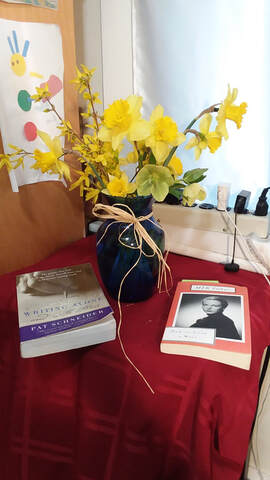
Update on Workshops
This week (March 18, 2020) the Lansdowne Writers' Workshop transitioned to an online format, via email and a 7-9PM Zoom call.
We kept our usual format of writing together, sharing what we wrote, taking a break for announcements and little time to talk, and then moving into manuscript review.
It was great to see everyone, write together, and feel community support around our writing.
And we even had spring flowers!
If you've taken a break from Wednesday nights and would like to rejoin us in the coming weeks, let me know!
This week (March 18, 2020) the Lansdowne Writers' Workshop transitioned to an online format, via email and a 7-9PM Zoom call.
We kept our usual format of writing together, sharing what we wrote, taking a break for announcements and little time to talk, and then moving into manuscript review.
It was great to see everyone, write together, and feel community support around our writing.
And we even had spring flowers!
If you've taken a break from Wednesday nights and would like to rejoin us in the coming weeks, let me know!
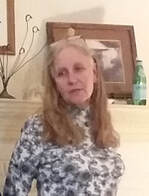
"Don't miss the opportunity to write with Louise: Memoirs, science fiction, children's stories, plays--she does it all and is so welcoming."
--Joyce VanRavenswaay
--Joyce VanRavenswaay
Summer Writing Retreat with Flowers and Alpacas (Coming Summer of 2022)
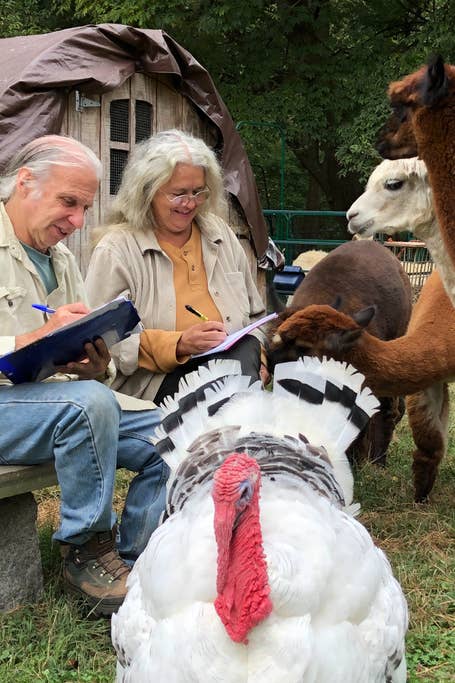
Flower and Alpaca Farm in Edgemont Township, just outside of Media
Questions? Please contact Louise at [email protected] or 610.892.7604.
What We’ll Do
Come out to a writing retreat on an alpaca and Flower Farm surrounded by woods. Arrive at 8:30 for bagels, tea, coffee, and a chance to meet everyone. Starting at 9:00, we will sit on the porch, with a view of the flower fields, as we write on a group icebreaker to warm us up. We will then have a two-hour block of time to work on a longer project of our choice. A lunch break will give us time to socialize and enjoy delicious food, and then we'll step outside to cut flowers and make our own arrangements. After lunch we will have another two-hour writing block, followed by sharing our progress. We'll wrap up at 4:00 with dessert and another chance to socialize.
What We’ll Provide
Lunch and Dessert
Enjoy a delicious, seasonal lunch! We will conclude the day with dessert.
Coffee, Tea, and Water
We'll start the day with coffee and tea. They will be available throughout the day.
What to Bring
Review: Chapin Cimino: "So glad I choose to spend this day writing with others just like me (and the animals, of course!). Heartwarming AND productive day."
- Complete work on a writing project
- Cut flowers and build your own arrangement
- Make new writing friends
- Relax in a supportive and beautiful environment
- Meet new animal friends
- Eat a delicious lunch
- Walk around a beautiful wooded farm
Questions? Please contact Louise at [email protected] or 610.892.7604.
What We’ll Do
Come out to a writing retreat on an alpaca and Flower Farm surrounded by woods. Arrive at 8:30 for bagels, tea, coffee, and a chance to meet everyone. Starting at 9:00, we will sit on the porch, with a view of the flower fields, as we write on a group icebreaker to warm us up. We will then have a two-hour block of time to work on a longer project of our choice. A lunch break will give us time to socialize and enjoy delicious food, and then we'll step outside to cut flowers and make our own arrangements. After lunch we will have another two-hour writing block, followed by sharing our progress. We'll wrap up at 4:00 with dessert and another chance to socialize.
What We’ll Provide
Lunch and Dessert
Enjoy a delicious, seasonal lunch! We will conclude the day with dessert.
Coffee, Tea, and Water
We'll start the day with coffee and tea. They will be available throughout the day.
What to Bring
- Notebooks
- Pens/pencils
- Laptop and charger
- An open mind
- A sense of fun and adventure
Review: Chapin Cimino: "So glad I choose to spend this day writing with others just like me (and the animals, of course!). Heartwarming AND productive day."
About Louise
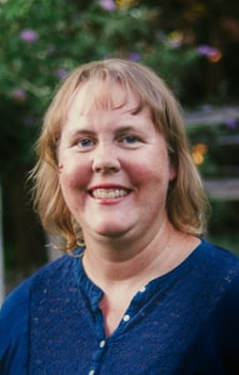
Louise Bierig graduated from the University of Iowa's Undergraduate Writers' Workshop. She has written countless short stories, several personal essays, a few poems, three novels, and is currently working on a novella. She has taught at the William Way Center in Philadelphia and at Soul Source in Swarthmore and Aston. Currently, she leads the Lansdowne Writers' Workshop as well as a workshop for Wallingford Swarthmore Community Classes. In 2021 she became an Amherst Writers and Artists (AWA) affiliate, certified to lead workshop in the AWA method.
Her short stories, Sylvia (2019) and Field of Rye at Twilight (2018) were published in Philadelphia Stories. In Winter 2020 her flash fiction piece Be the Deer was published in Peregrine Journal Volume XXXIII. In Spring 2020, her flash piece, The Valley of Ebro was published in The Schuylkill Valley Journal, Volume 50. In Winter 2021, her flash piece The Corner Bar Read-In was published by shortedition. In Summer 2021, her short story The Anderson Family Motto was published in Toho Publishing's The Best Short Stories of Philadelphia 2021.
Her essays have been published in The Philadelphia Inquirer and The Swarthmorean. Her fiction has won the following awards: 2004: Finalist in novel writing contest sponsored by Suspect Thoughts Press; 1997: Finalist for The Heekin Group Foundation Writer’s & Education Fund; 1992: First prize in Mercyhurst College’s short fiction contest.
Her short stories, Sylvia (2019) and Field of Rye at Twilight (2018) were published in Philadelphia Stories. In Winter 2020 her flash fiction piece Be the Deer was published in Peregrine Journal Volume XXXIII. In Spring 2020, her flash piece, The Valley of Ebro was published in The Schuylkill Valley Journal, Volume 50. In Winter 2021, her flash piece The Corner Bar Read-In was published by shortedition. In Summer 2021, her short story The Anderson Family Motto was published in Toho Publishing's The Best Short Stories of Philadelphia 2021.
Her essays have been published in The Philadelphia Inquirer and The Swarthmorean. Her fiction has won the following awards: 2004: Finalist in novel writing contest sponsored by Suspect Thoughts Press; 1997: Finalist for The Heekin Group Foundation Writer’s & Education Fund; 1992: First prize in Mercyhurst College’s short fiction contest.
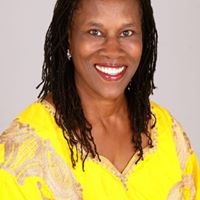
Review:
This fall (2018) I was able to attend the full series of writing sessions. I generally write to speak; i.e., what I write is intended to be spoken. This workshop offered the opportunity to approach writing differently; exploring plot, character development, description - and think creatively, writing without apology and sharing - if you so choose - in a small, intimate, and safe community of fellow aspiring writers. Regardless of where you are or how you see yourself as a writer (budding or experienced pro) everyone can take away something substantive in every one of Louise’s sessions. She also not only models quite well, how to read a manuscript and give helpful, concrete, useful feedback, she asks each writer to participate in the process. If you haven’t signed up yet - give it a shot. You may even make a new friend or two. I did. As someone who travels a lot, the writing prompts Louise gives for post class writing now travel with me! Will sign up again the next time I am able. Already miss my Workshop mates! -Charlotte Blake Alston
This fall (2018) I was able to attend the full series of writing sessions. I generally write to speak; i.e., what I write is intended to be spoken. This workshop offered the opportunity to approach writing differently; exploring plot, character development, description - and think creatively, writing without apology and sharing - if you so choose - in a small, intimate, and safe community of fellow aspiring writers. Regardless of where you are or how you see yourself as a writer (budding or experienced pro) everyone can take away something substantive in every one of Louise’s sessions. She also not only models quite well, how to read a manuscript and give helpful, concrete, useful feedback, she asks each writer to participate in the process. If you haven’t signed up yet - give it a shot. You may even make a new friend or two. I did. As someone who travels a lot, the writing prompts Louise gives for post class writing now travel with me! Will sign up again the next time I am able. Already miss my Workshop mates! -Charlotte Blake Alston
Submission Sunday Workshop
Do you have a bunch of stories/personal essays/poems you've written filed away on your computer, or in a drawer, just waiting for that special day when you’re going to do something with them? Stop waiting for that special day and make it happen now.
At Submission Sunday workshops we learn the basics of submitting, then submit our work to as many venues as we can in an afternoon. Not sure where to submit? Don’t worry, I provide current Calls for Submission, as well as plenty of resources to check out.
Bring your best writing, a laptop computer, and your daring do. Let’s start submitting together!
Please contact Louise at [email protected] or 610.892.7604 to join the waiting list for the next workshop.
At Submission Sunday workshops we learn the basics of submitting, then submit our work to as many venues as we can in an afternoon. Not sure where to submit? Don’t worry, I provide current Calls for Submission, as well as plenty of resources to check out.
Bring your best writing, a laptop computer, and your daring do. Let’s start submitting together!
Please contact Louise at [email protected] or 610.892.7604 to join the waiting list for the next workshop.
“A Writer is Someone Who Writes.” -Pat Schneider
Tribute to Pat Schneider (PS)
I don’t remember for sure what year it was—2015 or 2016—one of those years when my younger son was in his babyhood and keeping me awake at night and the only writing I was doing was monthly with my writing group—I wasn’t doing anything on my own and could barely sustain a short story, much less the novel I had been writing before my older son was born—when the writing group was meeting at my friend Rachel’s house, and I picked up her copy of Pat Schneider’s Writing Alone and With Others and started flipping through it. Wow, I thought, this looks like a great book on writing, I want to read it, but then my attention was drawn back to the other writers in the group, and reluctantly, I laid the book down, hoping I would get back to it someday.
Rachel leads The Philadelphia Writers Workshop, and in January 2017, after I admitted a desire to get back to teaching writing, she invited me to her workshop to see Pat Schneider’s Amherst Writers & Artists method in action. At Rachel’s workshop I started writing again, accessing things in surprising ways, and completing one of the few short stories I’d written in the seven years since having kids.
Soon afterwards, I bought my own copy of Writing Alone and With Others, and on a summer trip to Cape Anne, I began reading it on the beach. This was possible because my three year old was napping upstairs in the hotel with my husband, and my seven year old had been befriended by a large family having a reunion in the hotel and was playing bean bag toss with some other boys. I was on the beach. Alone. I was finally reading Pat Schneider’s book. I was thinking about writing and leading my own workshop in September.
My first discovery in those pages was Pat’s own journey through the non-writing time of raising four kids to her first poem (since kids) banged out atop the washing machine in her kitchen, to attending silent retreats, to getting enough sleep, to writing again, to leading her own workshops. Here, I found the guide of another mother who understood the necessity of putting words to page. The word that stuck out to me the most was the word “solitude.” I wanted, no, I craved, solitude, a chance to be alone, to breathe, to hear only my own voice.
Though I only met her through the pages of her book, Pat helped me chart my course back to writing. My path worked differently than hers: I started writing again first (with Rachel), then started leading workshops, then, after a few more years, started getting enough sleep, and finally started taking a day or two at a time away from home to recharge myself.
Time and again, I delved into the pages of Writing Alone and With Others, what I call in my brain and my workshop notes, “PS.” This book is my writing Bible. Anytime anything comes up in workshop, or I start feeling a hint of imposter syndrome, I flip into the pages and find Pat’s comforting, practical guidance rights me and lets me see I’m still on course.
Pat’s welcoming of writers of all backgrounds—racial, class, sexual, and gender identities—draws me in. Yet my favorite part of Pat’s method is the simplicity and the acceptance, the careful stating that “a writer is someone who writes.”
In Pat’s honor, I suggest that is what we all continue doing!
Louise S. Bierig
November 2020
Rachel leads The Philadelphia Writers Workshop, and in January 2017, after I admitted a desire to get back to teaching writing, she invited me to her workshop to see Pat Schneider’s Amherst Writers & Artists method in action. At Rachel’s workshop I started writing again, accessing things in surprising ways, and completing one of the few short stories I’d written in the seven years since having kids.
Soon afterwards, I bought my own copy of Writing Alone and With Others, and on a summer trip to Cape Anne, I began reading it on the beach. This was possible because my three year old was napping upstairs in the hotel with my husband, and my seven year old had been befriended by a large family having a reunion in the hotel and was playing bean bag toss with some other boys. I was on the beach. Alone. I was finally reading Pat Schneider’s book. I was thinking about writing and leading my own workshop in September.
My first discovery in those pages was Pat’s own journey through the non-writing time of raising four kids to her first poem (since kids) banged out atop the washing machine in her kitchen, to attending silent retreats, to getting enough sleep, to writing again, to leading her own workshops. Here, I found the guide of another mother who understood the necessity of putting words to page. The word that stuck out to me the most was the word “solitude.” I wanted, no, I craved, solitude, a chance to be alone, to breathe, to hear only my own voice.
Though I only met her through the pages of her book, Pat helped me chart my course back to writing. My path worked differently than hers: I started writing again first (with Rachel), then started leading workshops, then, after a few more years, started getting enough sleep, and finally started taking a day or two at a time away from home to recharge myself.
Time and again, I delved into the pages of Writing Alone and With Others, what I call in my brain and my workshop notes, “PS.” This book is my writing Bible. Anytime anything comes up in workshop, or I start feeling a hint of imposter syndrome, I flip into the pages and find Pat’s comforting, practical guidance rights me and lets me see I’m still on course.
Pat’s welcoming of writers of all backgrounds—racial, class, sexual, and gender identities—draws me in. Yet my favorite part of Pat’s method is the simplicity and the acceptance, the careful stating that “a writer is someone who writes.”
In Pat’s honor, I suggest that is what we all continue doing!
Louise S. Bierig
November 2020
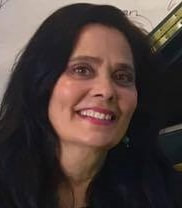
Review:
The Lansdowne Writer's Workshop has much to offer. It is always inspiring to work with Louise Bierig who is a dedicated writer, herself. She provides great prompts to get the creativity flowing and gives excellent, constructive, positive feedback. Don't forget to sign up for her upcoming workshops - you'll be glad that you did! -Patrica King Haddad
The Lansdowne Writer's Workshop has much to offer. It is always inspiring to work with Louise Bierig who is a dedicated writer, herself. She provides great prompts to get the creativity flowing and gives excellent, constructive, positive feedback. Don't forget to sign up for her upcoming workshops - you'll be glad that you did! -Patrica King Haddad
Lansdowne Writers' Workshop: Three Objectives
|
|
Lansdowne Writer's Workshop's Three Objectives:
- Generate new writing
- Polish this writing by means of manuscript review
- Share this writing with a wider audience. In some cases this will mean sharing with friends and family, in other cases it will mean sharing at a public reading, and in other cases it will mean submitting it for publication.
- Learn about cool, local writing events
- Make new writer friends
- Eat some great snacks
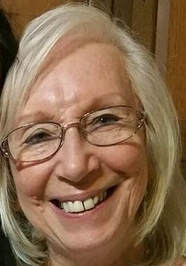
Review:
I appreciate Louise's expertise and the varied writing experiences we had in our class. Also, it is fun to join other writers creating characters and stories together~even attempting things I have never experienced before like screenwriting. There is always the opportunity to share what one writes with the rest of the group, but there is no pressure to do so. I look forward to continuing to work with her and the group for our next session of eight weeks together.
-Olivia Powell
I appreciate Louise's expertise and the varied writing experiences we had in our class. Also, it is fun to join other writers creating characters and stories together~even attempting things I have never experienced before like screenwriting. There is always the opportunity to share what one writes with the rest of the group, but there is no pressure to do so. I look forward to continuing to work with her and the group for our next session of eight weeks together.
-Olivia Powell
Writing With Others Can
Help you learn the craft
Help you correct your mistakes
Help you take risks
Help you publish
Give you perspective
Help you network
Help you believe in your own art
Assist in psychological and physical healing
Help you complete the artistic act
(Adapted from Writing Alone and with Others by Pat Schneider, the guide to the method used in the workshop.)
|
Review: I came to the workshop thinking it would be complicated. I expected all my You Ain't No Real Writer demons to have a field day. Instead, I found a space to come sit and just write with good people who want to do the same. Because it is who they are, and of all the ways they make lives in this world, writing is the one they love the most. A space led by a most precisely talented and uniquely amazing writer-teacher, whose well-rounded understanding of the craft is only outdone by her understanding of how to curate the best snacks.
You know the classic about once being lost and now being found? The workshop returned to me something I love so much that I couldn't even admit was lost (but it was!). I got back that feeling when my pen hits the paper, running, and I am myself. - Janine de Novais |
I AM From
I am from polluted water, now clean,
thanks zebra mussels.*
I am from vineyards smelling like
scratch and sniff grape stickers
I am from loneliness
from wind.
I am from a field with a gold-
eyelashed toad.
I am from Power Rangers and tractors that run
best on non-ethanol gasoline.
I am from an old road where a
stage coach used to cross the creek.
I am from sailboats.
I am from the Brick House with
its secret trunk in the
second floor bedroom, which
Jeff tells me was on the
underground railroad, though
my father doesn’t believe him.
The bedroom where Uncle John,
eight years old, shot a groundhog
from the window.
I am from beaches filled with
coarse, metallic sand—yes, it’s
full of iron ore, the filaments of which
will stick to a magnet—covered
in logs—old tree trunks that fell
over the banks and the waves carried downwind--
and flat chunks of shale.
No, don’t use them to build
a fire ring; they will crack in the heat
and hit you in the teeth.
*In 1972, The Clean Water Act and the Great Lakes Water Quality Agreement, signed by the United States and Canada, contributed to lowering the amount of pollutants entering the Great Lakes. The banning of DDT led to the renewal of higher level fish to the lake, as well as the return of eagles. However, fertilizers, pharmaceuticals, and chemicals in personal care products and plastics put the lake at risk and harmful algae blooms (a threat to Lake Erie for the last two decades) are on the rise.
--Louise S. Bierig
October 2017
I am from polluted water, now clean,
thanks zebra mussels.*
I am from vineyards smelling like
scratch and sniff grape stickers
I am from loneliness
from wind.
I am from a field with a gold-
eyelashed toad.
I am from Power Rangers and tractors that run
best on non-ethanol gasoline.
I am from an old road where a
stage coach used to cross the creek.
I am from sailboats.
I am from the Brick House with
its secret trunk in the
second floor bedroom, which
Jeff tells me was on the
underground railroad, though
my father doesn’t believe him.
The bedroom where Uncle John,
eight years old, shot a groundhog
from the window.
I am from beaches filled with
coarse, metallic sand—yes, it’s
full of iron ore, the filaments of which
will stick to a magnet—covered
in logs—old tree trunks that fell
over the banks and the waves carried downwind--
and flat chunks of shale.
No, don’t use them to build
a fire ring; they will crack in the heat
and hit you in the teeth.
*In 1972, The Clean Water Act and the Great Lakes Water Quality Agreement, signed by the United States and Canada, contributed to lowering the amount of pollutants entering the Great Lakes. The banning of DDT led to the renewal of higher level fish to the lake, as well as the return of eagles. However, fertilizers, pharmaceuticals, and chemicals in personal care products and plastics put the lake at risk and harmful algae blooms (a threat to Lake Erie for the last two decades) are on the rise.
--Louise S. Bierig
October 2017
Lake Erie in winter (photo courtesy of S. Sprague)
The I AM FROM Project
Dear Friends of Poetry & Democracy,
I’m writing to tell you about a project that Julie Landsman & I are developing in response to the rhetoric of xenophobia and isolationism that is becoming rampant in our country. In such an atmosphere, how can we find our voices and make them heard?One avenue is through poetry, that heart-cry that comes to us in times of love and crisis. Because my poem, “Where I’m From” has been used so widely as a writing model (most recently across Kentucky during my tenure as Poet Laureate)*, Julie–an educator, writer, and activist in Minneapolis–reached out to me with the idea of creating a national “I Am From” Project. Through Facebook**, a website, and a great network of teachers, librarians, writers, and community leaders, as well as other organizations, we hope to encourage and gather “I Am From” creations from all over the country and take them, in some form, to Washington in October of 2018.
The action in D.C. will be a culmination of local readings and workshops, statewide presentations, radio and TV appearances, and more.
We’re encouraging creation in many directions; poems, yes, but also dance, art, song, drama—expressions which can be videoed and shared with and beyond their local audience. In terms of poetry, one of Julie’s visions is a scroll made of “I Am From” poems wrapped around a school, a library, a state capitol. Another possibility is to put our poems on posters and have a river of poetry on the National Mall.
Our deepest hope is to open a way for We the People to express who this country really is, what our values are, and how they unite rather than divide us. America’s embrace is wide enough to include all of us if we put our minds and money to our common welfare.
We would love to have you involved in some way. Please send comments and suggestions to Julie at:
[email protected]
or me at:
[email protected]
Here’s to equality and hope. Here’s to all our voices!
George Ella Lyon
I’m writing to tell you about a project that Julie Landsman & I are developing in response to the rhetoric of xenophobia and isolationism that is becoming rampant in our country. In such an atmosphere, how can we find our voices and make them heard?One avenue is through poetry, that heart-cry that comes to us in times of love and crisis. Because my poem, “Where I’m From” has been used so widely as a writing model (most recently across Kentucky during my tenure as Poet Laureate)*, Julie–an educator, writer, and activist in Minneapolis–reached out to me with the idea of creating a national “I Am From” Project. Through Facebook**, a website, and a great network of teachers, librarians, writers, and community leaders, as well as other organizations, we hope to encourage and gather “I Am From” creations from all over the country and take them, in some form, to Washington in October of 2018.
The action in D.C. will be a culmination of local readings and workshops, statewide presentations, radio and TV appearances, and more.
We’re encouraging creation in many directions; poems, yes, but also dance, art, song, drama—expressions which can be videoed and shared with and beyond their local audience. In terms of poetry, one of Julie’s visions is a scroll made of “I Am From” poems wrapped around a school, a library, a state capitol. Another possibility is to put our poems on posters and have a river of poetry on the National Mall.
Our deepest hope is to open a way for We the People to express who this country really is, what our values are, and how they unite rather than divide us. America’s embrace is wide enough to include all of us if we put our minds and money to our common welfare.
We would love to have you involved in some way. Please send comments and suggestions to Julie at:
[email protected]
or me at:
[email protected]
Here’s to equality and hope. Here’s to all our voices!
George Ella Lyon
Submission Sunday a Success
On Sunday, October 22, Maureen Fielding, Associate Professor of English and Women's Studies at Penn State Brandywine offered pointers on submitting, and shared her knowledge of the electronic submission process with the Lansdowne Writers' Workshop. Following her presentation, we had nearly two hours to submit our work.
I submitted a poem to the I AM FROM project as well as a short story to a local literary journal. The poem was included on the I AM FROM project website a few days later.
The editor included this lovely reply: "Oh my..this is so amazing...really. I am not very effusive, but this! I love that you have taken the I am From form and written so beautifully, and provocatively about our water, our earth...Yours is a first in a sense...in how it captures what is happening, and keeps the rhythm of I am From as well."
I also submitted my short story, Field of Rye at Twilight to Philadelphia Stories, and it was published in March 2018.
I submitted a poem to the I AM FROM project as well as a short story to a local literary journal. The poem was included on the I AM FROM project website a few days later.
The editor included this lovely reply: "Oh my..this is so amazing...really. I am not very effusive, but this! I love that you have taken the I am From form and written so beautifully, and provocatively about our water, our earth...Yours is a first in a sense...in how it captures what is happening, and keeps the rhythm of I am From as well."
I also submitted my short story, Field of Rye at Twilight to Philadelphia Stories, and it was published in March 2018.
Maureen Fielding and Louise Bierig
Writing with Others at Community Day
On August 26, 2017 The Lansdowne Writers' Workshop hosted a free event at the Lansdowne Farmer's Market. I set up in in the Community Day section of the market and gave 15 minute writing prompts to anyone who wanted to write.
Get Feedback on Your Writing
When I coach writers, I give them writing prompts. These are to be written by hand on paper.
Recently, one writer told me about her experience with one of these exercises. She sat down before breakfast and wrote the exercise. Then she went into the kitchen to eat breakfast. After she finished eating, she thought, now I’ll go check to see what my friends thought of my exercise (as if she had posted it to Facebook). Then she remembered that the exercise was written on paper and that no one would see it until we met again a few days later.
At the Lansdowne Writers’ Workshop, after you complete a writing exercise, you will receive positive feedback immediately (if you chose to read your exercise to the group). There is also the opportunity to receive a detailed manuscript review of a more polished manuscript.
Note that we do not critique anything freshly written. First drafts are not to be judged in this way, but given only positive comments to allow these writings to grow.
Recently, one writer told me about her experience with one of these exercises. She sat down before breakfast and wrote the exercise. Then she went into the kitchen to eat breakfast. After she finished eating, she thought, now I’ll go check to see what my friends thought of my exercise (as if she had posted it to Facebook). Then she remembered that the exercise was written on paper and that no one would see it until we met again a few days later.
At the Lansdowne Writers’ Workshop, after you complete a writing exercise, you will receive positive feedback immediately (if you chose to read your exercise to the group). There is also the opportunity to receive a detailed manuscript review of a more polished manuscript.
Note that we do not critique anything freshly written. First drafts are not to be judged in this way, but given only positive comments to allow these writings to grow.
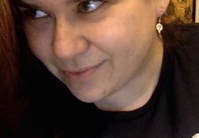
Review: This workshop was the perfect place to kickstart (restart, really) my writing after taking a break of several years. It's supportive, creative, and full of smart folks with keen insight.
-Martha Michaela Hutchman Brown
-Martha Michaela Hutchman Brown
My Introduction to Writing Workshops
The day that I launched the Lansdowne Writers’ Workshop, I learned that my mentor, Ken Schiff, had passed away a few days before. I had not seen Ken in twenty years, since a few months after I graduated from college. I had written him a letter and asked him for a job supervising high school students in the dorms where he hosted his summer Writer’s Institute. Ken wrote back and let me know that the liability of hosting high schools students in dorms had grown too high and he now ran the Institute as a day program. Otherwise, he would be glad to give me a job, but since he couldn’t, perhaps we could meet for coffee. A few months later, we did. The main thing I remember talking about was a trip he took with his son over winding Colorado mountains, and Ken’s fear of heights, which seemed to be increasing as he aged.
Ken had a great sense of humor, the kind that wasn’t readily understood, and as I proceeded to promote my workshop, I felt him cheering me on. I connected with other writing friends from my Writer’s Institute days, and we shared stories about Ken. He mentored so many, made so many dorky-feeling high school students feel sophisticated and smart. At the time I was in his workshop, he had two young kids, but he was constantly planning activities for us: picnics at his house, public readings where we read our work to an audience, and trips to the Chautauqua Institution.
Ken had come to Erie, PA from New York City. I’m not exactly sure what he thought of Erie, but he knew how to enjoy what it had to offer. What it lacked in culture, he found a way to create.
When I joined the Writer’s Institute, I was fifteen and feeling restless in my agricultural hometown. I moped around writing a short story with too many female protagonists. It was going nowhere, and no one wanted to read it. I was supposed to be working as a substitute lifeguard, but we were having, as we did every few years, one of our Lake Erie “Bummer Summers” where it rained and was cold and windy for weeks at a time. The regular lifeguards weren’t getting their hours, and no one needed a substitute.
When my parents sent me off to Writer’s Institute for three weeks, and I met Ken, the other students, and was introduced to the writing life, it changed the whole course of my life. Ken taught me skills that have served me for years: how to read a published story for fun and then read it again as a writer; how to critique a story; how to receive a critique; and how to read one’s writing in public.
One of my first nights there I was invited to a reading in a stone area known as The Grotto. I remember how cool it was to meet other kids who liked to write and to read. The first story I wrote was truly horrible. I went home over the weekend, and my dad tried to help me improve it by having me read Faulkner. It was hopeless; there was just no way to improve it before the deadline. After I submitted it, one of the boys thought it was so bad that he burned it and tacked it to the boys’ dormitory bulletin board. Some of the other students were outraged by this act, but I took it in stride. It was a bad story; my next one would be better. My next one won me a scholarship to return to Writer’s Institute the next summer.
I’ll never forget how I felt, my last day of class the first year, as I sat in the Square where students gathered, waiting to be picked up. As I watched others leave, I wrote and recorded everything I saw and felt.
I count that day as my first real day as a writer.
*With thanks to Ken for introducing me to the literary world, where I felt like I belonged, and to my parents for sending me there.
Ken had a great sense of humor, the kind that wasn’t readily understood, and as I proceeded to promote my workshop, I felt him cheering me on. I connected with other writing friends from my Writer’s Institute days, and we shared stories about Ken. He mentored so many, made so many dorky-feeling high school students feel sophisticated and smart. At the time I was in his workshop, he had two young kids, but he was constantly planning activities for us: picnics at his house, public readings where we read our work to an audience, and trips to the Chautauqua Institution.
Ken had come to Erie, PA from New York City. I’m not exactly sure what he thought of Erie, but he knew how to enjoy what it had to offer. What it lacked in culture, he found a way to create.
When I joined the Writer’s Institute, I was fifteen and feeling restless in my agricultural hometown. I moped around writing a short story with too many female protagonists. It was going nowhere, and no one wanted to read it. I was supposed to be working as a substitute lifeguard, but we were having, as we did every few years, one of our Lake Erie “Bummer Summers” where it rained and was cold and windy for weeks at a time. The regular lifeguards weren’t getting their hours, and no one needed a substitute.
When my parents sent me off to Writer’s Institute for three weeks, and I met Ken, the other students, and was introduced to the writing life, it changed the whole course of my life. Ken taught me skills that have served me for years: how to read a published story for fun and then read it again as a writer; how to critique a story; how to receive a critique; and how to read one’s writing in public.
One of my first nights there I was invited to a reading in a stone area known as The Grotto. I remember how cool it was to meet other kids who liked to write and to read. The first story I wrote was truly horrible. I went home over the weekend, and my dad tried to help me improve it by having me read Faulkner. It was hopeless; there was just no way to improve it before the deadline. After I submitted it, one of the boys thought it was so bad that he burned it and tacked it to the boys’ dormitory bulletin board. Some of the other students were outraged by this act, but I took it in stride. It was a bad story; my next one would be better. My next one won me a scholarship to return to Writer’s Institute the next summer.
I’ll never forget how I felt, my last day of class the first year, as I sat in the Square where students gathered, waiting to be picked up. As I watched others leave, I wrote and recorded everything I saw and felt.
I count that day as my first real day as a writer.
*With thanks to Ken for introducing me to the literary world, where I felt like I belonged, and to my parents for sending me there.
Louise at Mercyhurst College Summer Writers' Institute Open Mic
Writing in Pen
I write most of my first drafts in pen. This is convenient for me, but it is also about the writing process and the immediacy of using pen and paper to directly record my thoughts as they come to me.
Over the last several years, I have been given many notebooks by friends. One was 392 pages and took me a year and 2 weeks to fill. That one was a little heavy to carry around, especially when traveling!
Since then, I've had smaller notebooks. Recently, my supply of notebooks ran out, and I bought my first notebook, or decomposition book (as this one is made of recycled paper) in years. Ahhh, the lovely feeling of a new notebook stretching out in front of me, the wonder at what will fill the pages.
First page: section 18 of a long piece of fiction that I am writing.
At the Lansdowne Writers' Workshop, we will be doing all our writing by hand, so if you're thinking about joining the workshop, start preparing your favorite notebooks, pencils and/or pens.
Over the last several years, I have been given many notebooks by friends. One was 392 pages and took me a year and 2 weeks to fill. That one was a little heavy to carry around, especially when traveling!
Since then, I've had smaller notebooks. Recently, my supply of notebooks ran out, and I bought my first notebook, or decomposition book (as this one is made of recycled paper) in years. Ahhh, the lovely feeling of a new notebook stretching out in front of me, the wonder at what will fill the pages.
First page: section 18 of a long piece of fiction that I am writing.
At the Lansdowne Writers' Workshop, we will be doing all our writing by hand, so if you're thinking about joining the workshop, start preparing your favorite notebooks, pencils and/or pens.
“I hold this to be the highest task of a bond between two people: that each should stand guard over the solitude of the other.” -Rilke
Writing Alone and With Others
Pat Schneider’s Writing Alone and With Others provides general inspiration and to a guide for the Lansdowne Writers’ Workshop.
Ms. Schneider, the founder of Amherst Writers & Editors, has compiled a book full of exercises for long-time writers, new writers, and those getting back to writing after a break (which includes excellent information for mothers returning to writing). Her suggestions are down-to-earth and straightforward. The exercises allow writers to jump into writing as beginners or for more seasoned writers to jump-start a piece that may be stuck.
Ms. Schneider had four children, and while raising them, she struggled to write poems. Once the children were old enough to leave at home with her husband (in the late 1960s/early 70s), she began attending silent retreats, slept enough to start writing again, began writing poetry again, and eventually launched her workshop. Nowadays, moms and dads of young children will find themselves in similar situations--trying to find the quiet time they need to hear their stories and write them down.
My favorite section is on the topic of solitude. Schneider writes, “Solitude is an absolute necessity—the single most crucial necessity—for the writer. Only in the deepest solitude is it possible to achieve the utter surrender required for creative work.” Schneider goes on to quote Rilke, “I hold this to be the highest task of a bond between two people: that each should stand guard over the solitude of the other.”
Lately, I have been lucky enough to have a friend who has provided me this necessary solitude by offering me a quiet room in which to write. In exchange, I’ve provided her with a steady stream of writing exercises. One hour a week, I write in this room, and over the weeks I have been compiling the pages of a novella.
Another way in which we can stand guard over each other’s solitude and provide a place to write is by joining together in a writers’ workshop. In such a group, where members quietly focus on their own writing, solitude is preserved for the whole.
Experienced writers, new writers, and writers returning to writing who are looking for this kind of quiet, focused, and supportive environment in which to write may want to join the workshop.
Ms. Schneider, the founder of Amherst Writers & Editors, has compiled a book full of exercises for long-time writers, new writers, and those getting back to writing after a break (which includes excellent information for mothers returning to writing). Her suggestions are down-to-earth and straightforward. The exercises allow writers to jump into writing as beginners or for more seasoned writers to jump-start a piece that may be stuck.
Ms. Schneider had four children, and while raising them, she struggled to write poems. Once the children were old enough to leave at home with her husband (in the late 1960s/early 70s), she began attending silent retreats, slept enough to start writing again, began writing poetry again, and eventually launched her workshop. Nowadays, moms and dads of young children will find themselves in similar situations--trying to find the quiet time they need to hear their stories and write them down.
My favorite section is on the topic of solitude. Schneider writes, “Solitude is an absolute necessity—the single most crucial necessity—for the writer. Only in the deepest solitude is it possible to achieve the utter surrender required for creative work.” Schneider goes on to quote Rilke, “I hold this to be the highest task of a bond between two people: that each should stand guard over the solitude of the other.”
Lately, I have been lucky enough to have a friend who has provided me this necessary solitude by offering me a quiet room in which to write. In exchange, I’ve provided her with a steady stream of writing exercises. One hour a week, I write in this room, and over the weeks I have been compiling the pages of a novella.
Another way in which we can stand guard over each other’s solitude and provide a place to write is by joining together in a writers’ workshop. In such a group, where members quietly focus on their own writing, solitude is preserved for the whole.
Experienced writers, new writers, and writers returning to writing who are looking for this kind of quiet, focused, and supportive environment in which to write may want to join the workshop.
Can Writing Be Taught?
When I was studying writing at The University of Iowa, I lived in France for a month with a host family. The father, a professor of engineering, was interested to learn about my program and asked me how writing could be taught. At the time, I didn’t have an answer for him.
In an October 2016 interview with the Philadelphia Inquirer, writer Ian McEwan was asked if he ever taught writing. He replied,
“I’ve chatted to seminars and groups of students, including MFA students, usually when I’m passing through the morning after giving a reading. Long before I even published my first book in the States, I taught at [the University of Iowa Writers’ Workshop]. I had a very enjoyable time. My sense is that anyone who is good arrived good and left good. They surely picked up a few things. The most useful is when someone has expectations of you. You’ve got a reader, got an audience. The difference between having a handful of people [reading your work] and having no one is infinite.”
Can writers be taught to write? Well, they can be taught the basics of grammar and syntax. They can be taught how to be clear and express their true meaning. But really, what writers need are readers who can reflect back to them what is working and what is not.
This is why McEwan’s point about having an audience resonated with me.
I have been in a writers’ workshop or writers’ group since 1991, so when I have a story I want to workshop, it’s easy enough for me to find an audience. Finding the perfect reader or editor can take some trial and error. Personally, I like to find someone who inspires me to do my best work, yet encourages me to keep rewriting.
Writing in a vacuum doesn’t provide writers with the feedback they need. In a vacuum, writers may nurture grandiose visions of their writing or underestimate the impact of their words. That is why, sooner or later, we all need to find an audience.
In an October 2016 interview with the Philadelphia Inquirer, writer Ian McEwan was asked if he ever taught writing. He replied,
“I’ve chatted to seminars and groups of students, including MFA students, usually when I’m passing through the morning after giving a reading. Long before I even published my first book in the States, I taught at [the University of Iowa Writers’ Workshop]. I had a very enjoyable time. My sense is that anyone who is good arrived good and left good. They surely picked up a few things. The most useful is when someone has expectations of you. You’ve got a reader, got an audience. The difference between having a handful of people [reading your work] and having no one is infinite.”
Can writers be taught to write? Well, they can be taught the basics of grammar and syntax. They can be taught how to be clear and express their true meaning. But really, what writers need are readers who can reflect back to them what is working and what is not.
This is why McEwan’s point about having an audience resonated with me.
I have been in a writers’ workshop or writers’ group since 1991, so when I have a story I want to workshop, it’s easy enough for me to find an audience. Finding the perfect reader or editor can take some trial and error. Personally, I like to find someone who inspires me to do my best work, yet encourages me to keep rewriting.
Writing in a vacuum doesn’t provide writers with the feedback they need. In a vacuum, writers may nurture grandiose visions of their writing or underestimate the impact of their words. That is why, sooner or later, we all need to find an audience.
Writing the Book You Want to Write
I am reading Between You & Me: Confessions of a Comma Queen, by Mary Norris. Norris writes,
“One of the things I like about my job is that it draws on the entire person: not just your knowledge of grammar and punctuation and usage and foreign language and literature, but also your experience of travel, gardening, shipping, singing, plumbing, Catholicism, midwesternism, mozzarella, the A train, New Jersey, and in turn it feeds your own experience.”
This perfectly describes how I feel as an editor. I love bringing my life knowledge and experience to an author’s manuscript. In turn, my life knowledge and experience is added to by the process of editing the author’s work. The experience of encouraging a writer, especially a first-time author, so inspires me that I find I am doing my own best writing in parallel.
Another quote from Norris resonated with me.
“There is a big fancy word for ‘going beyond your province’: ‘ultracrepidate…’ So much of copy editing is about not going beyond your province. Anti-ultracrepidationism. Writers might think we’re applying rules and sticking it to their prose in order to make it fit some standard, but just as often we’re backing off, making exceptions, or at least trying to find a balance between doing too much and doing too little.”
It is for this reason that I prefer to read over a manuscript before I start querying the author (asking questions in the margins). I like to fully understand an author’s piece and the culture behind it before diving in with specific suggestions on how to improve a piece. In my editing, I strike a balance between encouraging the author and providing honest feedback. My role is to help authors create the books they want to write.
“One of the things I like about my job is that it draws on the entire person: not just your knowledge of grammar and punctuation and usage and foreign language and literature, but also your experience of travel, gardening, shipping, singing, plumbing, Catholicism, midwesternism, mozzarella, the A train, New Jersey, and in turn it feeds your own experience.”
This perfectly describes how I feel as an editor. I love bringing my life knowledge and experience to an author’s manuscript. In turn, my life knowledge and experience is added to by the process of editing the author’s work. The experience of encouraging a writer, especially a first-time author, so inspires me that I find I am doing my own best writing in parallel.
Another quote from Norris resonated with me.
“There is a big fancy word for ‘going beyond your province’: ‘ultracrepidate…’ So much of copy editing is about not going beyond your province. Anti-ultracrepidationism. Writers might think we’re applying rules and sticking it to their prose in order to make it fit some standard, but just as often we’re backing off, making exceptions, or at least trying to find a balance between doing too much and doing too little.”
It is for this reason that I prefer to read over a manuscript before I start querying the author (asking questions in the margins). I like to fully understand an author’s piece and the culture behind it before diving in with specific suggestions on how to improve a piece. In my editing, I strike a balance between encouraging the author and providing honest feedback. My role is to help authors create the books they want to write.
Why I Read
A few years ago, while I was reading, If on a winter's night a traveler, the 1979 novel by Italo Calvino, a passage challenged me to define what it was that I loved so much about reading. Calvino writes,
“Your house, being the place in which you read, can tell us the position books occupy in your life, if they are a defense you set up to keep the outside world at a distance, if they are a dream into which you sink as if into a drug, or bridges you cast towards the outside, toward the world that interests you so much that you want to multiply and extend its dimensions through books.”
While there have been times that I have read to escape from the outside world, my primary reason for reading is to learn about people that I will never have the chance to meet and places that I will never be able to visit. I read to visit times gone by, as well as have experiences that I wouldn’t in the ordinary course of my life.
“Your house, being the place in which you read, can tell us the position books occupy in your life, if they are a defense you set up to keep the outside world at a distance, if they are a dream into which you sink as if into a drug, or bridges you cast towards the outside, toward the world that interests you so much that you want to multiply and extend its dimensions through books.”
While there have been times that I have read to escape from the outside world, my primary reason for reading is to learn about people that I will never have the chance to meet and places that I will never be able to visit. I read to visit times gone by, as well as have experiences that I wouldn’t in the ordinary course of my life.
Other Resources
|
Review:
Louise Bierig is a great instructor, who encourages a supportive, workshop environment each week, conducive to the creative process. -Guinevere Janes |
|
Pat Schneider founded the method described in her book, Writing Alone and With Others. Pat is a poet, playwright, librettist, and author of ten books of poetry and non-fiction. She was born in the Ozark mountains of Missouri where she became intimate with fossils, creekbeds, grasshoppers and box turtles. After a search for work took her single mother to St. Louis, from age ten Pat lived in tenements and in an orphanage until she was given a scholarship to college. Those early experiences have deeply influenced her writing, and fueled her passion for those who have been denied voice through poverty and other misfortunes.
|
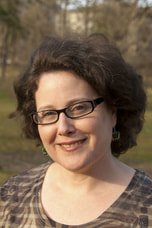
My colleague, Rachel Kobin, leads The Philadelphia Writers Workshop. Rachel was kind enough to invite me to participate in her workshop in winter 2017. This helped me reestablish my writing practice, following a several year break in regular writing after becoming a parent. It also prepared me to lead The Lansdowne Writers' Workshop. Rachel's workshops fills up quickly; she leads a general workshop, similar to mine, as well as a manuscript workshop, where folks with full length manuscripts receive in-depth reviews from Rachel and their peers.
|
The Free Library of Philadelphia offers an excellent series of authors events. The author events series is one of my favorite things about the city and features writers such as John Irving, Barbara Kingsolver, Louise Erdrich, Elizabeth Gilbert, John Updike, and Michael Pollan, to name a few. The benefits of attending these events for writers are huge: it's inspiring, it's a great opportunity to hear writers read aloud in their own voices, and it's a way to learn how they wrote their books.
|
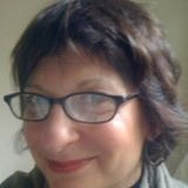
Kathye Fetsko Petrie maintains a great website of local literary resources at Local Lit. The Local LIT Calendar of Literary Events is a curated list of exciting literary events taking place in the Philadelphia area—and occasionally beyond, from September through May. To find these events, scroll through the calendar below, then click on the author or event name to be taken to a website with more information. Many events are free.
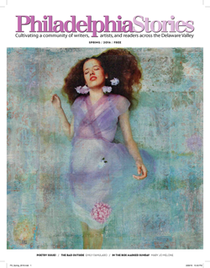
Check out our local literary magazine, Philadelphia Stories. The mission of Philadelphia Stories is to cultivate a community of writers, artists, and readers in the Greater Philadelphia Area through publications, professional development, and promotion of area writers.
Drop Me a Line!
Please contact me by email or phone
Email
|
Telephone
610-892-7604
|
Or complete this convenient contact form
© 2016-2024 Feline-Friendly Freelance. All Rights Reserved.
